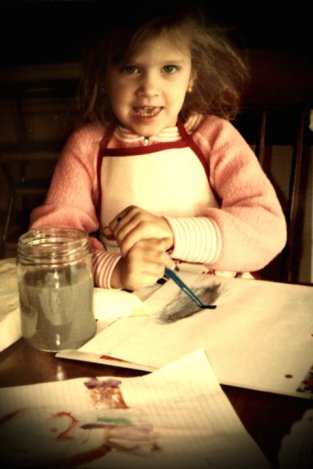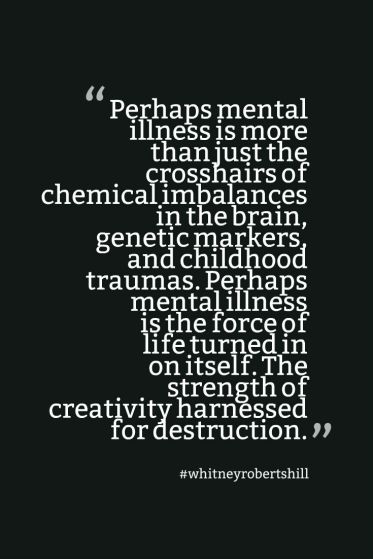I was eight when I first decided I wanted to be a writer. I had wanted to be a veterinarian before that. Dr. Harris, our neighbor and one of the most interesting adults I knew, was a veterinarian. He wore a thoughtful expression and a white coat, and he fielded all my questions with great seriousness while he examined our mutt atop his metal table. The Harris house was teeming with life–dogs, cats, houseplants, even a koi pond in the backyard. His wife had long glossy hair that shook down her back like a curtain when she laughed, which was often.
Around the age of eight, though, I abandoned my dreams of becoming a veterinarian. Miss Boyette, our elementary school’s librarian—a woman who was entirely round, round face, round glasses, sooty round curls on top of her head—introduced me to chapter books. And I realized for the first time that it was possible to spend hours or even days lost in someone else’s mind. I was in a new world.

And then, it dawned on me that there were people whose whole job it was to sit in a room and make up these characters and their lives, to wield the rolodex of their own emotions (of which I had plenty, as a sensitive child) for the purpose of reaching others. It seemed like the most important thing in the world. And I wanted to try it. I wanted to explain people to themselves. I wanted to explain myself to myself. And I wanted to do it in language so beautiful that made me close my eyes and smack my lips, the same way that candy did.
The good news was that I seemed to have a knack for writing. By the time I was eleven, my fifth grade teacher, whom I trusted because she was decidedly not a gusher, gushed about my proficiency in journaling. It seemed I was one of the destined, anointed—those lucky few who just know very early on what it is they are supposed to do with their lives.
But there was one problem. I didn’t know any writers, personally. Not one. I didn’t have any proof that writing was a real job for real people. So I was exposed, helpless to shore up my dream in the face of the eroding power of our cultural myths about creativity. The ones that well-meaning adults routinely rain down on children in the name of protecting them from disappointment.
There’s no future in becoming a writer. Writers are poor. So few actually make it. And, besides writers are loners. They’re selfish, irresponsible, maladjusted. Crazy.
I didn’t really care that becoming a writer was hard. What bothered me, as my vision of what made a writer got fleshed out with the opinions of others, was my sense that I was somehow missing part of the formula for becoming a writer which, to my childish mind, went something like this:
Passion + Talent + Torture = Writer
My life was not tortured. At that time, nothing bad had really happened to me. I was charmed, except to me it felt more like I was cursed. How could I be a writer if I was a normal person living a normal life?
I didn’t have to wait long for my cosmic answer. As Flannery O’Connor famously said, “Anybody who has survived his childhood has enough information about life to last him the rest of his days.” And my childhood wasn’t over.
At the age of thirteen, I started getting the doses of human drama and suffering I’d been strangely pining for. The details aren’t important (nor are they mine to share), but what is important is that my quiet, ordered life was upended totally. Now I was living life.
It’s hard to suss out when exactly Anxiety and Depression walked through the open door left by that early adolescent shake up. I had always been a worried kid. The type that lay in bed at night and fretted that the ice caps were melting, my family didn’t have a fire escape plan posted to our refrigerator, and also everyone I’d ever known was going to die–me included. You get the picture.
For nearly half of my life now I have lived in the warped realities created by my personal Venn Diagram of Major Depressive Disorder, Generalized Anxiety Disorder, Social Anxiety Disorder, and Panic Disorder. Somewhere along the way, I stopped telling people that I wanted to be a writer. Eventually, I stopped telling even myself.
The science shows that writers have more than twice the risk of schizophrenia and bipolar disorder compared to the general population. And writers have a greater risk of depression, anxiety disorders and substance abuse. The rate of mental illness in writers is higher than in other creative professions, including visual artists and musicians, and writers have the broadest spectrum of disorders represented.
I’m not capable of explaining with broad strokes why this relationship between writing and mental illness exists. Nor am I able to rattle off a long list of those writers who have been affected by mental illness, or those philosophers who have opined about this connection throughout history. What I can do is talk about the way in which my understanding of this relationship between creative expression and mental illness has changed through my own experience.
I thought, as a girl, that mental illness was a necessary ingredient for creativity. But, I could never square that fact with the happy, well-adjusted creatives of the world. (And there are some.)
I no longer think of mental illness as an ingredient. Having experienced both the permeability and elasticity of mind that is needed to take on creative work and the instability of mind that is the hallmark of mental illness, I now think of them as existing on a continuum with one another. They are a suprapersonal energy and power. A spiritual power. The power to destroy the human organism or to transcend it.
unhealthy healthy
<————————————->
mental illness creativity
Anxiety and depression are creativity killers. In the midst of a depressive period or anxious episode, I am unable even to leave my bed or my house, to cook or eat, to shower or dress, to concentrate long enough to read more than one sentence of a book. To say I can’t write when in the grip of these illnesses is woefully insufficient to explain their power over me. I can barely keep myself alive when they are at their worst.
But I have discovered something. The road to healing my mind is the same as the road to creative recovery. When I began to recognize the dividing line between myself and my illnesses, when I saw them as constructs of my own mind (I do not intend in any way to belittle the reality of these illnesses here; I am remarking instead on the incredible power of the human mind.), I found the power to write again. In fact, I felt more compelled to write than ever.
Writing keeps my anxiety and depression at bay.
Let me be clear. I don’t mean that writing well keeps them at bay. I don’t mean that liking what I have written keeps them at bay. I don’t mean that publishing, winning contests, receiving praise or recognition keeps them at bay.
I mean the daily practice of writing connects me to myself. And the most dangerous part of mental illness is the lie it tells you about yourself. That you are it. You are your depression. You are your anxiety. And therefore it is inescapable and unbearable.
For me, writing is a spiritual practice. It is an outward manifestation of a connection with my own essential being. The part of me that answered, inside that eight year old girl, the first time I fell into a book alone.
Writing is an exercise in touching the deepest mystery of life.

Perhaps mental illness is more than just the crosshairs of chemical imbalances in the brain, genetic markers, and childhood traumas. Perhaps mental illness is the force of life turned in on itself. The strength of creativity harnessed for destruction.
In Hinduism there exists the concept of Trimurti—the threefold understanding of God as simultaneously the creator (Brahma), the preserver (Vishnu) and the destroyer (Shiva).
We think of creation and destruction as separate. But what if they’re not?
We think of illness and wellness as separate. But what if they’re not?
We think of the mind, body and soul as separate. But what if they’re not?
So, even though it is so scary to say out loud, I have started telling people again that I want to be a writer. Because it’s true. It’s always been true.
I’m not in charge of what that looks like. I know that now. And on a vital, holy level, it doesn’t matter.

I am in awe of you- and your talent – again. Thank you for sharing your perspective so eloquently and willingly. I cannot adequately express how very impressed I am at your sheer courage and determination. Of course, I always knew you had it in you to do the hardest work in life with great integrity. Glad you are recognizing it for yourself! Happy to have known and loved that eight year old little girl with the purest joy I’ve ever known, and just as happy to know and love the woman you are now, and the woman you will be on all of the tomorrows yet to come. You make my heart jump for joy!
LikeLike